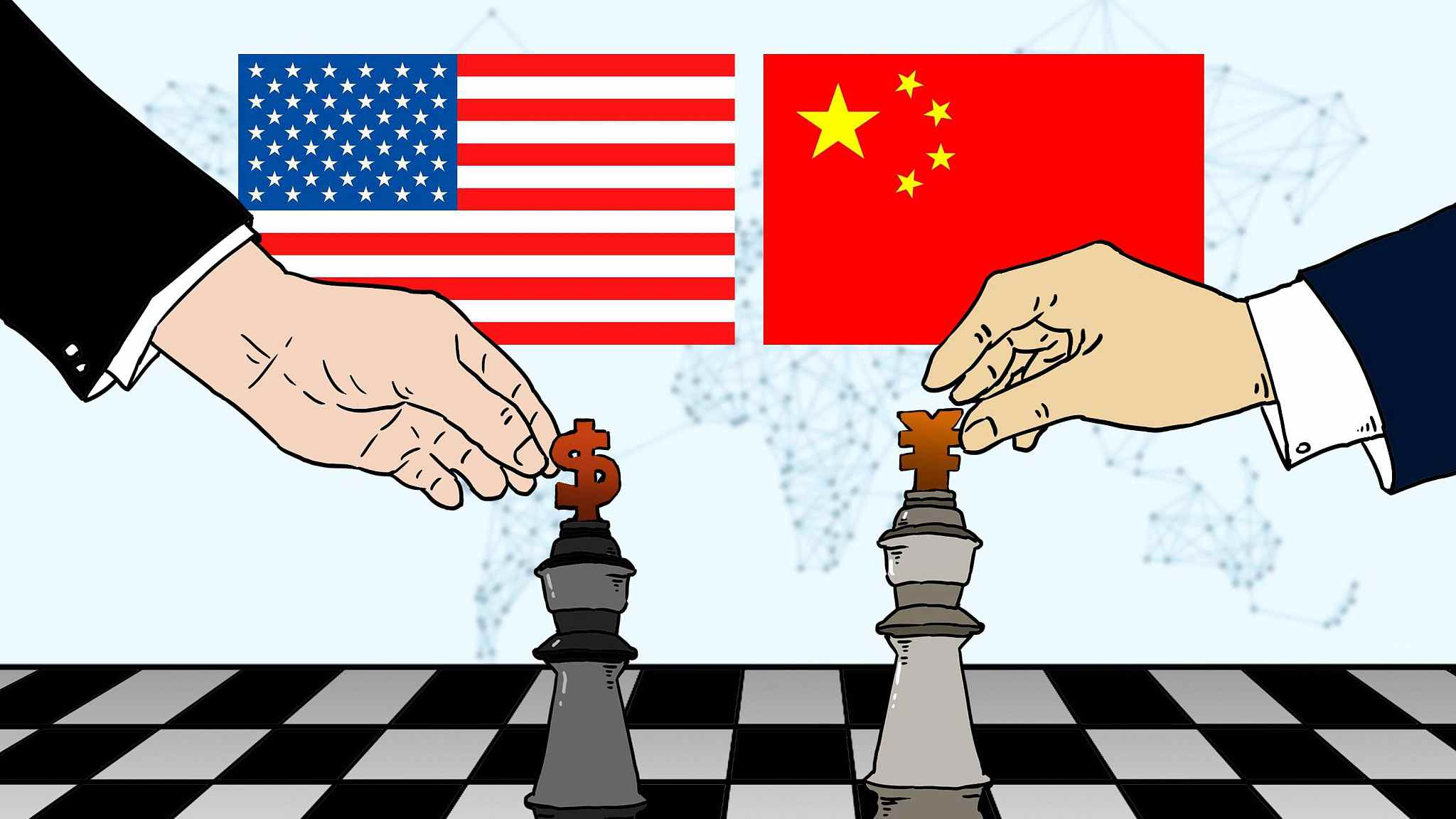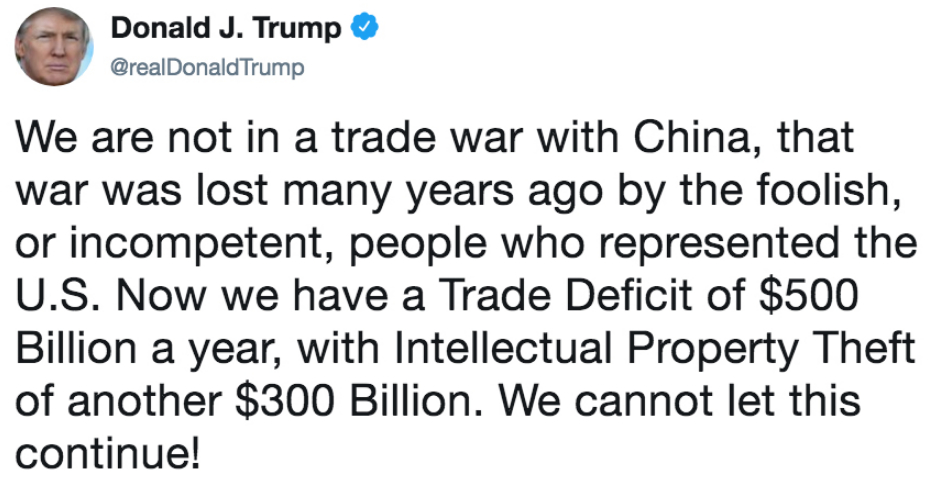
Opinions
13:20, 03-Oct-2018
Opinion: Why China will win the trade war with the US
Updated
12:56, 06-Oct-2018
Ghanbar Naderi

Editor's note: Ghanbar Naderi is an Iranian columnist and political commentator. The article reflects the author's opinion, and not necessarily the views of CGTN.
Chinese authorities on September 24 released a 71-page document, titled "The Facts and China's Position on China-US Trade Friction", commenting on growing tensions between Washington and Beijing. On the same day, a new round of tariffs by the Trump administration on 200 billion US dollars of Chinese goods took effect.
The trade dispute between the world's two largest economies continues to escalate. The Trump administration has yet to explain its position, which means trade friction could be a long-term issue.
The US has launched the trade war on the basis of unilateralism, protectionism, and self-centeredness. This will only harm the US economy, but also slow down the recovery pace of the global economy.
The reason lies behind the facts
Washington aims to inhibit fair competition through extreme trade protectionist measures. Abusing national security laws, the US intends to hinder the normal investment of foreign companies on US territory. In contrast, Beijing has been the defender of global trade. China's determination to promote free trade is reflected in its "Made in China 2025" policy and the one-trillion-US-dollar Belt and Road Initiative. Meaning, China does not want to enter into a trade battle "but it will fight one if necessary," and it can't lose.
US President Donald Trump once tweeted that the US is not in a trade war with China – and that "that war was lost many years ago" under the helm of previous US governments.
The irony is that Trump's tariffs are a tax on Americans, since tariffs provoke retaliatory measures. American businesses and consumers will become collateral damage as the US trade wars further escalate.

Screenshot of a tweet by US President Donald Trump, April 4, 2018.
Screenshot of a tweet by US President Donald Trump, April 4, 2018.
China is being punished for its hard work and innovation. But the economic superpower won't be defeated. China's healthy economic situation is backed by data. In 2017, China's total spending on research and development hit 257 billion US dollars, ranking second globally. China continues to reform its economic system through innovation and domestic demand – not through alleged intellectual property theft.
China's rise as a global technology powerhouse is acknowledged by the West, where not even one nation backs Trump's trade battle. The truth about China's tech landscape is far more dynamic and, for investors, it is yielding significant opportunities. In recent years, China has essentially moved mountains when it came to innovation, and has fostered an unparalleled technological ecosystem fueled by fair competition, home-grown talent, and capital.
China has a resilient economy and an enormous market. It enjoys the full support of the international community that rejects Trump's protectionism, unilateralism, and hegemony. Any doubters should ask the United Nations General Assembly. The US contradicts itself and is constantly challenging the UN, causing serious damage to global trade and diplomacy.
China's trade flows are more balanced than Trump would like to acknowledge in his tweets. They are in line with the rules of the World Trade Organization (WTO). China has taken steps in opening its markets, echoing what Western economists have been saying. China's trade and investment practices are in line with international law. And Beijing is even calling for a win-win compromise. The same cannot be said of Washington.
The trade war has affected every economic sector in the US. According to US scholars and businesses, states like California will keep the door open to China when it comes to trade and economic cooperation, particularly the collaboration in poverty alleviation and clean energy. They believe strong trade relations between the US and China are necessary to ensure rapid growth and poverty eradication.
China is a net seller of US debt. The US' biggest creditor is doing just enough to let the treasury and Trump know that it can send yields soaring and the US can't afford it if China unloads over one trillion US dollars in treasury holdings – it is no doubt a financial weapon of mass destruction that China doesn't intend to use.
The world's reaction to Trump
The Chinese document gives an overall better perspective about what lies behind the unnecessary trade dispute. It makes it clear that a truce between the two superpowers is beneficial for global economy, and that Trump's protectionism has no international economic foundation. It is based on a wrong belief and could easily lead to further economic, social and political tensions.
American businesses are dismissing Trump's so-called accomplishments and tying job losses to additional tariffs on Chinese goods. They are protesting Trump's overconfidence on tariffs. Businesses like Walmart continue to issue stern warnings to Trump, arguing that his tariffs on Chinese goods are detrimental to the American economy. They force price hikes, and hurt customers and the American economy as a whole.

General Motors Co. Cadillac sport utility vehicles park outside a car dealership in Shanghai, July 8, 2018. /VCG Photo
General Motors Co. Cadillac sport utility vehicles park outside a car dealership in Shanghai, July 8, 2018. /VCG Photo
Washington's traditional allies in Europe and Asia also have no interest in trade deals with the US only. They continue to resist US efforts to create bilateral free trade agreements. Even the G20 has pushed back against the Trump administration. They are pressing the US to end its trade wars and tariffs. They insist the US return to the Trans-Pacific Partnership and other trade agreements, which are in the best interest of all countries.
The Trump administration needs to change its "might makes right" mindset, because it only fuels isolationism, protectionism, and anti-globalization tendencies. The world is trying to adjust to Trump's protectionism by developing regional trade agreements and diversifying trade partners. In between, the US is losing, unable to compete and thrive in a multilateral world.
(If you want to contribute and have specific expertise, please contact us at opinions@cgtn.com.)

SITEMAP
Copyright © 2018 CGTN. Beijing ICP prepared NO.16065310-3
Copyright © 2018 CGTN. Beijing ICP prepared NO.16065310-3